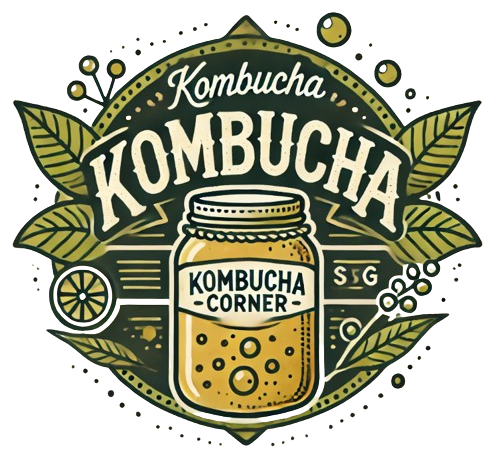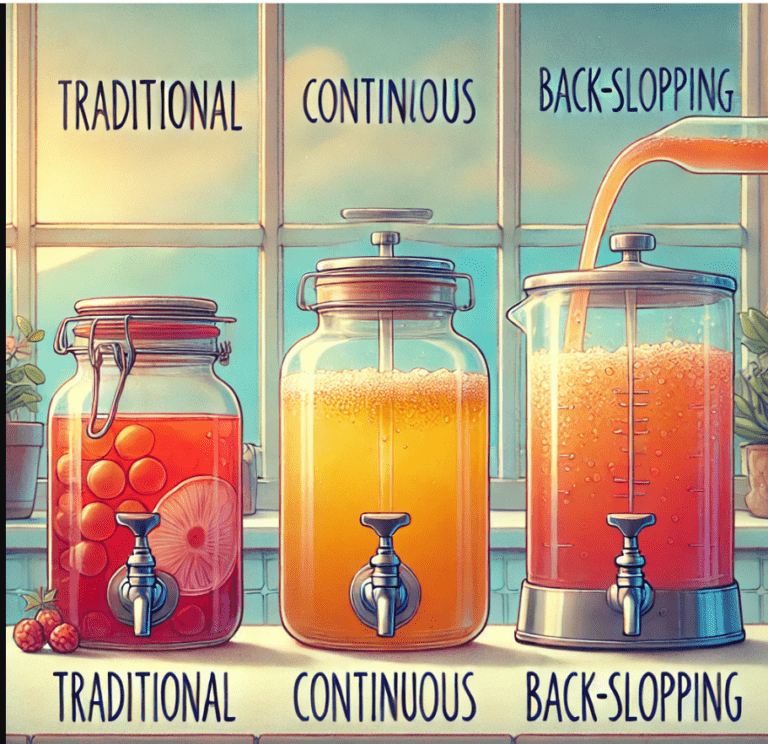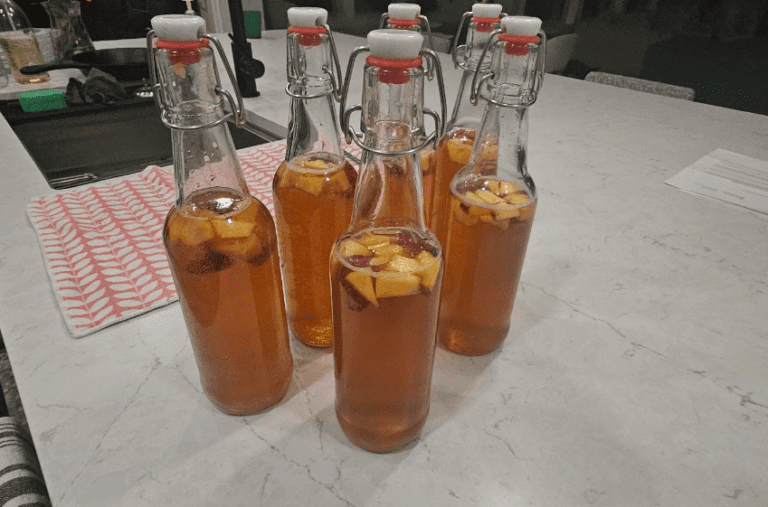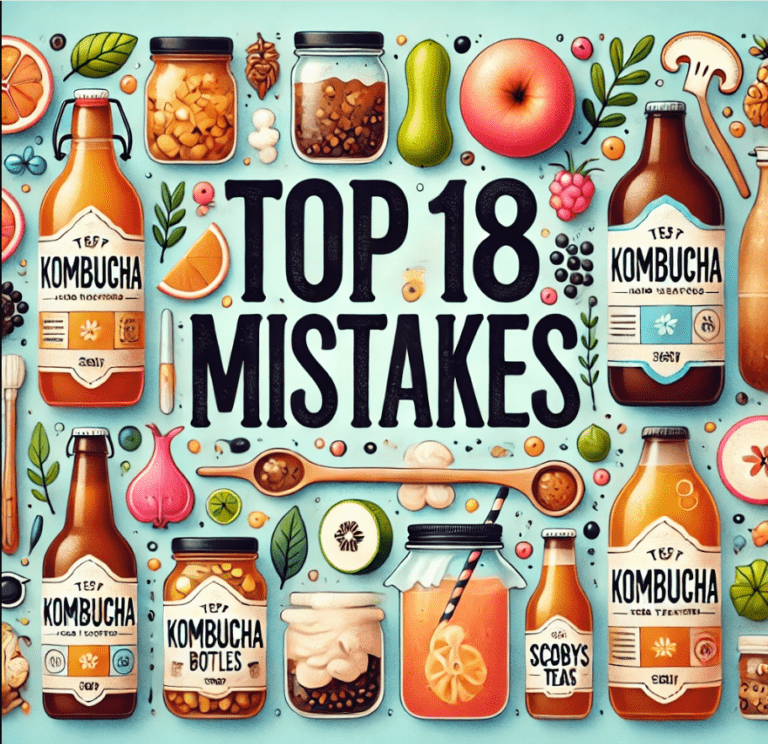Is Kombucha Safe for Kids?
Everything You Need to Know Kombucha, the fizzy, tangy tea that’s taken the wellness world by storm, is often praised for its…
Everything You Need to Know
Kombucha, the fizzy, tangy tea that’s taken the wellness world by storm, is often praised for its potential health benefits. But when it comes to kids, many parents are left wondering: Is kombucha safe for kids? The short answer is yes—but with a few important caveats. In this article, we’ll dive into the specifics of kombucha for kids, including the safety concerns around alcohol content, the differences between homebrewed and commercial kombucha, and what health experts have to say.
What is Kombucha, Anyway?
Kombucha is a fermented tea that’s made by adding a symbiotic culture of bacteria and yeast (commonly known as a SCOBY) to sweetened black or green tea. The SCOBY consumes the sugar, fermenting the tea and producing a small amount of alcohol and carbonation in the process. The result is a tart, effervescent beverage that contains probiotics, vitamins, and other compounds that many people believe to be beneficial for gut health.

Why Are People Concerned About Whether Kombucha is Safe for Kids?
There are three main concerns when it comes to determining if kombucha is safe for kids: the alcohol content, the potential for harmful bacteria, and the sugar content.

Alcohol Content
Kombucha naturally contains a small amount of alcohol due to the fermentation process. Most commercially produced kombuchas are pasteurized and contain less than 0.5% alcohol by volume (ABV), which is low enough to be considered non-alcoholic under U.S. law. However, there is still some concern among parents about giving even this small amount of alcohol to children.
Bacteria and Homebrewed Kombucha
Another concern is the potential for harmful bacteria to grow during the fermentation process, particularly in homebrewed kombucha. While commercial kombucha is typically pasteurized or produced under controlled conditions to minimize this risk, homebrewing can be more unpredictable. This is especially concerning for children, who may have weaker immune systems compared to adults.
Sugar Content
While kombucha is often touted as a healthier alternative to sugary sodas, it still contains sugar, which is necessary for fermentation. Some commercial brands add extra sugar after fermentation to enhance flavor, and certain fruits used in flavoring kombucha—like pineapple or mango—naturally contain high levels of sugar. High sugar intake in children can contribute to issues such as obesity, tooth decay, and metabolic problems.
Comparing Sugar in Kombucha vs. Other Kids’ Drinks
To understand how kombucha compares to other popular kids’ drinks, let’s break down the sugar content of each:
- Kombucha: On average, commercial kombucha contains about 2-6 grams of sugar per 8-ounce serving. This translates to roughly 0.5 to 1.5 teaspoons of sugar.
- Soda (Pop): A typical 8-ounce serving of soda contains about 26 grams of sugar, which is equivalent to 6.5 teaspoons of sugar.
- Fruit Juice: An 8-ounce serving of apple juice contains around 24 grams of sugar, or 6 teaspoons of sugar. Orange juice is similar, with about 22 grams of sugar, or 5.5 teaspoons.
- Sports Drinks: An 8-ounce serving of a sports drink contains approximately 13 grams of sugar, which equals about 3.25 teaspoons.
- Chocolate Milk: An 8-ounce serving of chocolate milk contains about 24-26 grams of sugar, or 6-6.5 teaspoons.
From this comparison, it’s clear that kombucha generally contains significantly less sugar than sodas, juices, and other sweetened beverages commonly consumed by kids. However, it’s still important to monitor the sugar content in kombucha, especially given that some brands may have higher amounts due to added sugars or the use of high-sugar fruits.
The Impact of Sugar on Gut Health
While kombucha is often consumed for its probiotic benefits, it’s important to understand how sugar intake can affect gut health, particularly in children. Excessive sugar in a child’s diet can feed harmful bacteria and yeast in the gut, potentially leading to imbalances that may negate the benefits of the probiotics found in kombucha. This makes it especially important to opt for kombuchas with lower sugar content to truly support your child’s gut health.

Tip: Encourage a balanced diet that includes kombucha with other low-sugar, high-fiber foods to promote a healthy gut environment.
Kombucha as a Transition Drink
If you’re trying to reduce your child’s consumption of sugary sodas or juices, kombucha can serve as an effective “transition drink.” Its slight sweetness and carbonation make it an appealing alternative that’s still far lower in sugar than most sodas or juices. Over time, you can gradually reduce their kombucha intake in favor of even healthier, lower-sugar beverages like water or herbal teas.
Tip: Start by replacing one soda or juice serving a day with kombucha, and gradually increase water intake alongside it.

Practical Tips for Choosing the Best Kombucha for Kids
Selecting the right kombucha for your child can make a big difference in their health and enjoyment. Here are some practical tips:
- Check the Label: Look for kombuchas that clearly label their sugar content and specify that they are pasteurized. Aim for those with 5 grams of sugar or less per serving.
- Avoid Added Sugars: Some brands add sugar after fermentation to sweeten the drink. Opt for brands that use natural fruit flavors without additional sugars.
- Choose Kid-Friendly Brands: Brands like Health-Ade and GT’s Synergy offer varieties that are both low in sugar and more palatable for kids. Look for mild, fruit-flavored options that are less tart and more enjoyable for younger palates.
What Do Health Experts Say About Whether Kombucha is Safe for Kids?
A 2019 study published in the journal Food Research International looked at the safety of kombucha for children. The study concluded that for children aged four and up, drinking pasteurized commercial kombucha in moderation poses no significant health risks. This is because the alcohol content in these drinks is negligible, and the controlled production process ensures that harmful bacteria are unlikely to be present.
However, the study does caution against giving children unpasteurized or homebrewed kombucha due to the potential risks of contamination and higher alcohol content. Homemade kombucha can sometimes exceed the 0.5% ABV threshold, especially if fermentation is allowed to continue for too long.
Commercial vs. Homebrewed Kombucha: What’s the Difference?
Understanding the differences between commercial and homebrewed kombucha is key to making an informed decision about whether kombucha is safe for kids.
- Commercial Kombucha: Most kombucha found on store shelves is made under strict conditions. It is typically pasteurized to kill any harmful bacteria and to ensure that the alcohol content stays within the legal non-alcoholic limit of 0.5% ABV. These products are tested for consistency and safety, making them a more reliable option for kids.
- Homebrewed Kombucha: Brewing kombucha at home can be a fun and rewarding hobby, but it comes with risks. Because the fermentation process can be difficult to control, the alcohol content in homebrewed kombucha can vary. In some cases, it may even exceed 2-3% ABV, which is closer to the alcohol content of light beer than a soft drink. Moreover, without pasteurization, there’s a higher risk of contamination by harmful bacteria or mold.
How Much Kombucha is Safe for Kids?
For kids over the age of four, health experts generally recommend limiting kombucha consumption to 4-8 ounces per day. This allows them to enjoy the potential benefits of kombucha—such as improved digestion due to probiotics—without exposing them to excessive alcohol or other risks.
As always, it’s a good idea to consult with your pediatrician before introducing any new foods or beverages into your child’s diet, especially if they have any underlying health conditions or concerns.
Alternatives to Kombucha for Kids
If you’re still hesitant about giving your child kombucha, there are other probiotic-rich options that can support their gut health without the alcohol or other potential risks.

- Yogurt: A classic source of probiotics that most kids love. Look for brands with live and active cultures.
- Kefir: A fermented milk drink that’s rich in probiotics and available in both dairy and non-dairy versions.
- Probiotic Supplements: These can be an easy way to ensure your child is getting enough probiotics, especially if they have dietary restrictions.
Tips for Introducing Kombucha to Kids
If you’ve decided to introduce kombucha to your child, here are some tips to make the process smooth:
- Start Small: Begin with a small amount, such as 2-4 ounces, to see how your child’s digestive system reacts. Kombucha can be acidic and carbonated, which might be a bit much for some kids.
- Dilute It: To reduce the acidity and carbonation, try diluting kombucha with water or mixing it with juice. This can also make the taste more palatable for children.
- Choose Mild Flavors: Some kombuchas have strong, tangy flavors that kids might not like. Opt for milder, fruit-flavored varieties to make the introduction more enjoyable.
Frequently Asked Questions (FAQ)
Can kombucha help with my child’s digestion?
Yes, the probiotics in kombucha can support healthy digestion, but it’s important to give it in moderation.
Is kombucha safe for toddlers?
Health experts generally recommend waiting until a child is at least four years old before introducing kombucha, especially pasteurized, commercial varieties.
What should I do if my child doesn’t like the taste of kombucha?
Try diluting it with water or mixing it with juice to make the flavor more appealing. Alternatively, explore other probiotic-rich foods like yogurt or kefir.
References and Further Reading
- Safety and health benefits of kombucha: A systematic review of evidence in humans – Food Research International (2019)
- FDA Guidelines on Kombucha and Alcohol Content
- Understanding the sugar content in fermented beverages – Journal of Food Science (2016)
- The risks of homebrewing kombucha – International Journal of Food Microbiology (2018)






